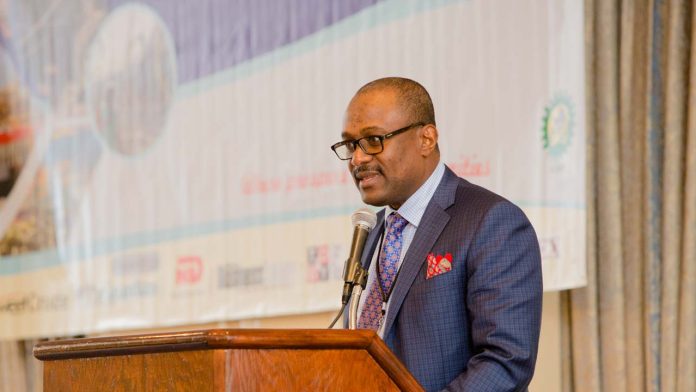The Nigerian Content Development and Monitoring Board (NCDMB) has disclosed that the country lost over $380 billion before the enactment of the Nigerian Oil and Gas Industry Content Development Act in 2010.
Simbi Wabote, executive secretary, NCDMB, spoke at a sensitisation workshop for the Rivers state judiciary in Port Harcourt on Thursday.
The workshop was themed, ‘Philosophy and Imperative of the Nigerian Oil and Gas Industry Content Development Act’.
Wabote, who spoke virtually, explained that local content was not about nationalisation of foreign firms, but about domiciliation and domestication for local value addition.
“Despite Nigeria’s enviable hydrocarbon and human resources, it is disheartening to note that only a small, insignificant proportion of the oil and gas industry value was retained in the country,” he said.
“Prior to the enactment of the Nigerian Oil and Gas Industry Content Development Act of 2010, almost all value-adding activities were done overseas, and this resulted in significant capital flight, which was estimated to be at about $380 billion over a 50-year period.
“This resulted in over two million job losses, as most jobs were also executed by foreigners. Furthermore, less than 5 percent of Nigeria’s yearly oil and gas industry spending was retained in the country.”
He added that local content needs foreigners and foreign direct investments to thrive.
“It is important to note that local content is not about nationalisation; it is about domiciliation and domestication for local value addition,” Wabote said.
“It needs foreigners and foreign direct investments to thrive. Local content is not a corporate social responsibility, it is a business. Local content is a marathon, not a sprint; and local content is not at all cost.
“Local content has no one-size-fits-all approach or solution; local peculiarities are key considerations in implementation. What that means is that local content needs in Nigeria may not be the same in other countries like Qatar, local content obtainable in Nigeria or Qatar depends on the peculiarity of the country.
“As always, our message remains simple: we want partakers in the Nigerian oil and gas industry to produce, process, refine, manufacture, add value, retain value, pay taxes here and create jobs here in Nigeria.”













